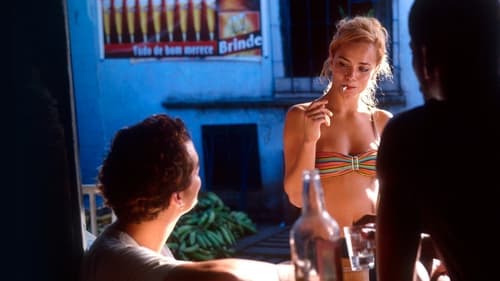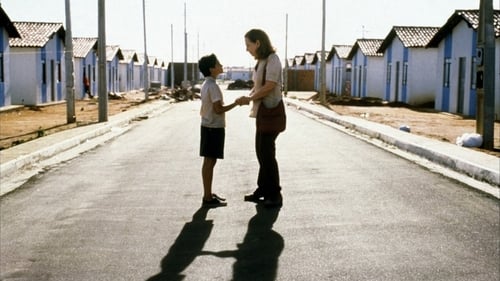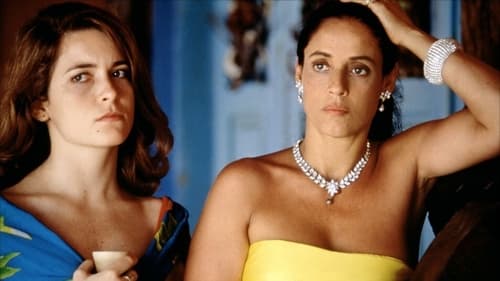Harildo Déda
出生 : 1939-11-03, Simão Dias, Sergipe, Brazil

Diretor / Mestre Espiritual

Planta Carnívora
Tiny is a girl who takes care of her pet carnivorous plant with lots of love and fresh ants. On the eve of her 7th birthday, Tiny wants the plant to call him by her name, but the plant demands more and more ants. The ants, tired of being eaten, work out a plan that involves poetry, umbrellas and a time machine.

Lucio velho
Lúcio comes back home drunk and tired after a party late into the night and has a fight with his wife, Terezinha. Then, a butler shows up at their door to inform them Terezinha's mother has died.

Santo

Dubbings, stunts, remixes, aesthetic covers. Diffuse, decentralized, peripheral, tipsy. Theme: an extemporaneous choreographic chanchada. Content: artistic nudity, discrete zoophilia and dance.

Ex-padre americano
On a same night, five people from a small country town have the same nightmare. Upon the arrival of a pilgrim, the village is taken off its mediocre routine and the characters are thrown on the vortex of an uncommon situation. Each one’s truth will come to light, releasing them of the wicked hypocrisies, fears and diseases, compelling them to take control of their fate and rewrite their life.

Pai Martiniano

The old servant and chronicler Dom Sabas tells how his desolate South American town is the scene of a ruthless power struggle. The landowning Assis family, reduced to a widow and son, tries to hold out against the young, despotic mayor. No less effective then actions are anonymous rumors and accusations, which often stir the inhabitants' moves.

Careca
Best friends Deco and Naldinho co-own a cargo boat in Brazil's Salvador da Bahia. They give a ride to a sultry prostitute named Karinna, and soon both men fall prey to her considerable sexual charms, pushing the bounds of their friendship to the limit.

Quelezinho

Bené
かつて教師をしていたドーラは、今はリオデジャネイロの中央駅で代筆業を営んでいる。字の書けない人のために手紙を書くのが彼女の仕事だが、次第に何の感情も持たないようになり、その手紙を実際に出すことはほとんどなくなっていた。

Coronel Artur
Just when her family starts believing that she is dead, and that they can expect a rich heritage, Tieta returns from São Paulo to her native village in Bahia, which she had been forced to leave long ago because of some involvement with a goat herd. Believed to be fabulously rich - and nobody knows how - she brings to the great disappointment of her family a young step-daughter and heir. With the arrival of Tieta turmoil enters into the life of her family and their fellow villagers. Most particularly into the life of her nephew - promised to the Church - and the young aspiring mayor.

Narrador

Padre

João da Silva Brown, a resident of Salvador, has always been a fan of comics, movies and adventure series and superheroes. Once he learns about a course for detectives and decides to attend it. With his private detective degree, he sets up an office and places an ad in the newspaper. Now wearing a cape and hat, he waits in vain for customers.

In the beginning of the 20th Century, in the Northeast of Brazil, one of the first Brazilian industrialists is persecuted because he refuses to sell his business to a British company.

Professor Fontes
When a prominent U.S. Nobel Laureate arrives in Salvador, Bahia, the city with the largest black population in Brazil, he stirs emotions by championing a long-forgotten local writer named Pedro Archanjo, who believed that humanity would be improved only through miscegenation.

Rocha

This Brazilian film is set during the period of its initial colonial discovery and settlement. The title refers to a word the native peoples used for the coastal lands: "pindorama," or "place of the small trees." A ponderous and grandiose film, it was roundly booed when it was aired at the 1971 Cannes Film Festival.











